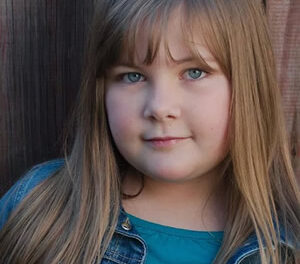Since the rather unexpected retirement of Women’s Voices Chorus founder Mary Lycan, the chorus has continued strong under the capable leadership of Sue Klausmeyer. They appeared at the first Women’s Choral Festival of Washington, DC in March and just recently in a joint concert with the UNC Women’s Glee Club.
The Chapel Hill program at University United Methodist Church, entitled “Welcome Love,” featured a broad concept of love as the emotion that binds us to all things that are important to us and brings us pain as well as ecstasy. This understanding of love includes music itself.
The program began with an anonymous text from the 10th century, “Ubi caritas et amor Deus ibi est” (“Where there is love, God is there”). The setting, by Eleanor Daley (b.1955), begins with a solemn and serene chant. Under the next verse a soft drone is added. The next section is sung in harmony with some polyphony and then combines the simple chant line with three-part harmony sung in a bilingual presentation in Latin and English. The unison chant returns only to break out into harmony again on the last word and then in a wonderful polyphonic “Amen.” It is a beautiful piece marred only slightly by an unruly toddler being taken from the sanctuary.
“Welcome Love,” by Lana Walter (b.1948), is a setting of late renaissance texts: “A Welcome” by William Brown, “of Tavistock”; “The Mad Maid’s Song” by Robert Herrick; “To My Dear and Loving Husband” by Anne Bradstreet; and “Pack, Clouds, Away!” by Thomas Heywood. Several soloists from WVC were featured in this beautiful romantic suite: Judy Moore, Lisa DiMaria, Anne Menkens, Carli Webb, Mary Hoover*, Rebecca Knickmeyer, and Joan Troy Ontjes. They all did their various parts confidently and effectively. The audience insisted on applauding each section of the suite, though Klausmeyer’s having declined to acknowledge the applause should have been a clue that a piece written in four parts (as a symphony) should not be interrupted between the parts.
The Spring Ensemble (a 12-voice ensemble chosen from the larger chorus) sang a fascinating vocally percussive piece, “You Say There is No Love,” by Kirke Mechem (b.1925). The traditional Welsh lullaby “Suo Gan,” arr. Thomas Edward Morgan, featured very nice solo work by soprano Carli Welsh over a hummed and vowel-sustained choral accompaniment by the full choir.
The highlight of the evening for this reviewer was Ralph Vaughan Williams stunningly descriptive “Magnificat,” with guest artists contralto Tamsin Simmil and flutist Maureen Kelly. “Magnificat” was composed in 1932 with Vaughan Williams’ powers of composition in full flower. It was written for orchestra, but the flute and piano provided stirring accompaniment. WVC piano accompanist Deborah Coclanis did a sensational job throughout this piece and the whole concert. The contralto solo is highly demanding in range and technique, and Simmil delivered the full effect of the piece. The flute solo adds a rather Middle Eastern or oriental effect in places. Combined with heavy chords from the piano, it provides an absolutely chilling and ethereal setting for the text “The Holy Ghost shall come upon thee….” By the time the work reaches the contralto’s closing line (“Behold the handmaid of the Lord; be it unto me according to thy word”), one is convinced of the innocence, humility and devotion of the chosen one. It is a remarkable piece of music well executed on this occasion by Klausmeyer and a company of fine singers and instrumentalists.
California composer David Conte uses texts from Percy Bysshe Shelly and John Dryden for his three-section suite “In Praise of Music.” The piano accompaniment, as described in the program, “is equal in significance to the choral parts,” especially in capturing the emotional grandeur of Dryden’s line “What passion cannot music raise and quell?” Indeed this piece could almost be called a piano concerto with chorus. Small groups within the chorus also provided unique and descriptive effects.
For the closing piece, the women let their hair down so to speak and cut loose with an authentically jazz-infused version of Irving Berlin’s “Blue Skies,” arr. Steve Zegree. Solos by Carli Webb and Judy Moore were winsome, and guests Ben LaVange, drums, and Jade-Lin Chue, bass, provided their skills to round out the cool rendition.
As an encore, the choir sang Gwyneth Walker’s exuberant setting of the Quaker hymn “How Can I Keep from Singing.”
It was a well-paced concert featuring the usual Women’s Voices Chorus trademarks: eclectic programming in a great mix of familiar and rarely heard and new music. The singing was on pitch, entrances were mostly on the mark, and the blend of voices and diction were fine. As usual, it was a delightful evening.
*Mary Hoover is the spouse of the reviewer.











